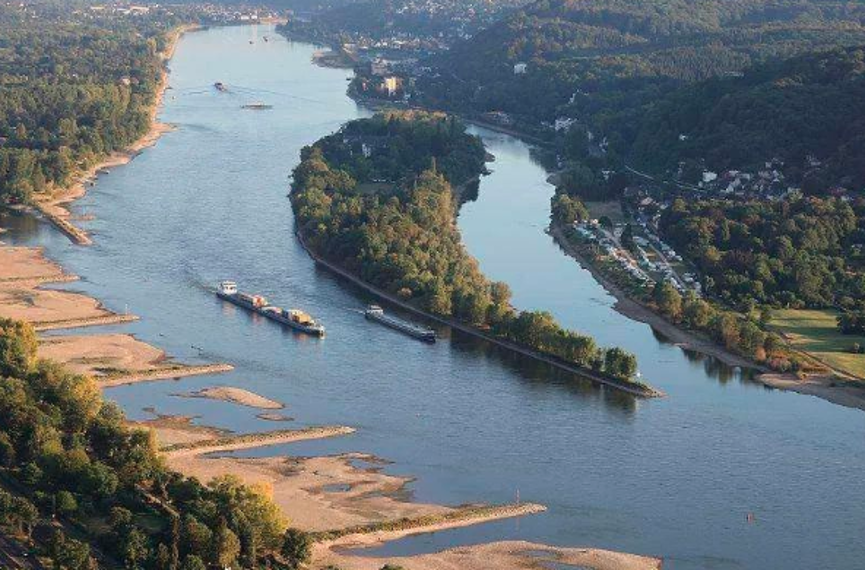Europe could be suffering its worst drought in 500 years: This year’s drought could be worse than 2018′s, said Toretti, a senior fellow at the European Commission’s Joint Research Centre. How severe is the drought in 2018, even if you look back at least 500 years in the past, there is no such severe drought, and this year’s situation is worse than 2018.
Affected by the persistent drought, the water level of the Rhine River in Germany continued to decline. The water level of the Rhine in the Kaub section near Frankfurt has dropped to a critical point (below 16 inches) of 40 centimeters (15.7 inches) on Friday and is expected to rise further next Monday, according to the latest data from Germany’s Federal Waterways and Shipping Authority (WSV). It dropped to 33 centimeters, approaching the lowest value of 25 centimeters set in 2018 when the Rhine was “historically cut off”.
As the “lifeline” of the European economy, the Rhine River, which through countries such as Switzerland, Germany, France and the Netherlands (Europe’s largest port Rotterdam), is an important shipping channel in Europe, and tens of millions of tons of goods are transported between countries through the Rhine River every year. About 200 million tons of goods are transported by the Rhine in Germany, and a drop in its water level will put a large number of goods at risk, exacerbating the European energy crisis and further driving up inflation.
The section near Kaub is the middle section of the Rhine. When the measured water level drops to 40 cm or below, the capacity of the barge is only about 25% due to the draught limit. Under normal circumstances, the ship needs a water level of about 1.5 meters to sail with full load. Due to the significant decrease in the cargo capacity of the ship, it is loaded with commodities. The economic cost of ships sailing across the Rhine will be pushed up sharply, and some large ships may simply stop sailing. German officials said that the water level of the Rhine River has dropped to a dangerous low and predicted that the water level will continue to decline next week. Barges may be banned from passing within a few days.
At present, some larger ships and barges can no longer pass through Kaub, and in Duisburg, large barge units with a normal load of 3,000 tons can no longer be operated. Cargo is transferred to small canal barges capable of operating in shallow water, increasing costs for cargo owners. Water levels on key stretches of the Rhine have fallen to extremely low levels, leading major barge operators to impose cargo loading restrictions and low-water surcharges on barges on the Rhine. Barge operator Contargo has started implementing low-water surcharges of €589/TEU and €775/FEU.
In addition, due to the sharp drop in water levels in other important stretches of the Rhine, coupled with the government’s imposition of draught restrictions on the Duisburg-Ruhrort and Emmerich stretches, barge operator Contargo levies 69-303 euros/TEU, 138- Supplements ranging from 393 EUR/FEU. At the same time, the shipping company Hapag-Lloyd also issued an announcement on the 12th saying that due to draft restrictions, the low water level of the Rhine River is affecting barge transportation. Therefore, low-water surcharges will be levied on imported and exported goods.
Post time: Aug-15-2022

